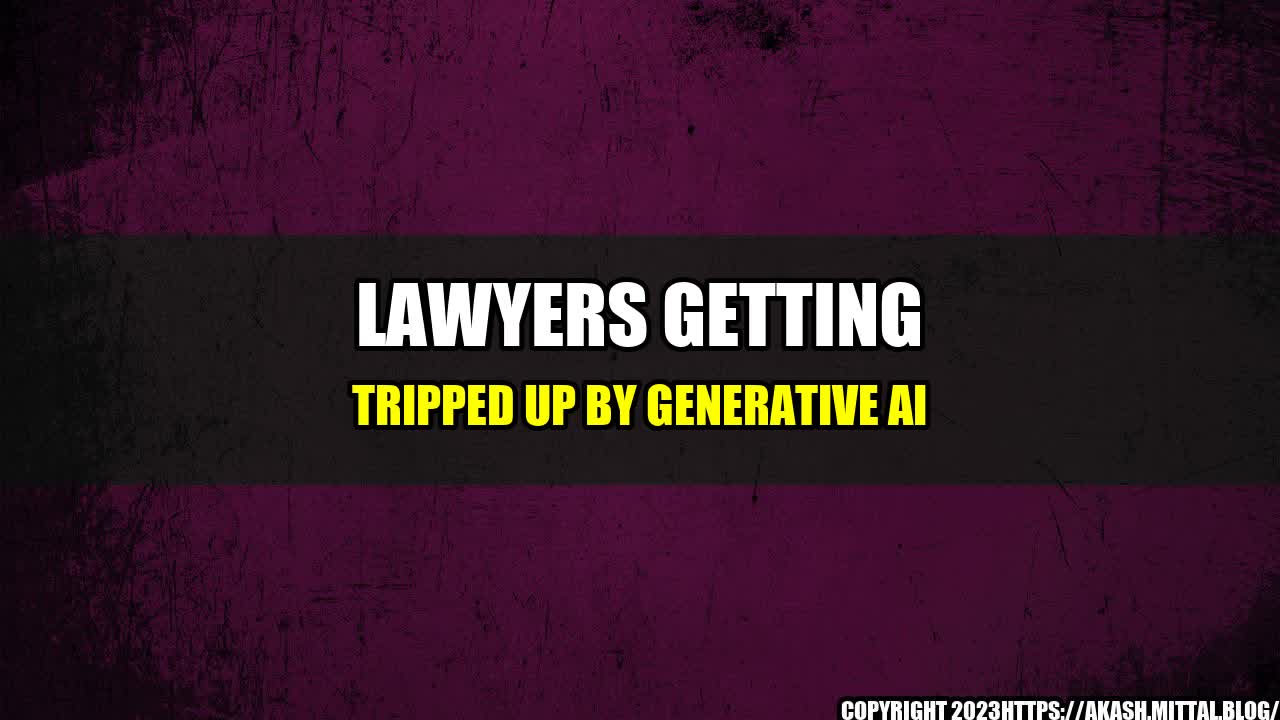Imagine you're a lawyer working on a case when suddenly your client receives an email from a chatbot claiming to be you. The chatbot suggests a settlement offer that is far from what you had in mind and the client accepts it. You are left wondering how it could have happened. Welcome to the world of generative AI, where machines are learning to mimic human language and behavior and are starting to infiltrate the legal profession.
Generative AI, in the form of chatbots and virtual assistants, has been used in customer service and sales for some time now, but it is now making its way into legal work. Companies like Legal Robot and LawGeex are using machine learning algorithms to analyze contracts and legal documents, and some firms are using chatbots to assist with basic legal tasks such as drafting wills and filing paperwork.
While there are benefits to using generative AI in the legal profession, such as increased efficiency and cost savings, there are also risks that must be considered. As with any technology, there is the potential for errors and misuse.
- Errors in language: Generative AI algorithms can make mistakes in interpretation and expression of language. This can lead to errors in contracts and other legal documents.
- Accuracy of data: The accuracy of data used by generative AI algorithms can affect the accuracy of the output. If the data has biases or inaccuracies, the output will reflect this.
- Ethical concerns: Using chatbots to perform tasks traditionally done by lawyers raises ethical concerns around the unauthorized practice of law and the responsibility for legal advice given.
The legal profession must navigate these risks in order to take advantage of the benefits of generative AI. Here are some ways lawyers can do this:
- Understand the technology: Lawyers need to have a solid understanding of how generative AI works and what its limitations and risks are.
- Select the right provider: Lawyers should use providers who have experience and expertise in the legal profession and who are transparent about their algorithms and data sources.
- Embrace change: Lawyers need to embrace the changes that come with technological advances and be willing to adapt to new ways of working.
In conclusion, generative AI is transforming the legal profession, but it also carries risks that must be carefully considered. By understanding the technology, selecting the right provider, and embracing change, lawyers can take advantage of the benefits of generative AI while minimizing the risks.

Curated by Team Akash.Mittal.Blog
Share on Twitter Share on LinkedIn